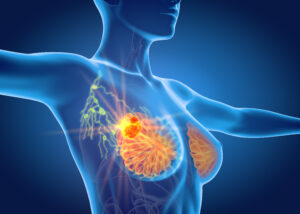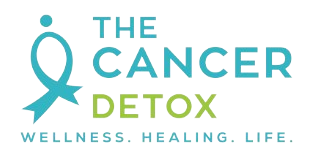What is Triple Negative Breast Cancer?
What is Triple Negative Breast Cancer?

Hello cancer-fighting friends!
Ready to learn about triple-negative breast cancer? For those women who have been diagnosed with this disease, you know about the fear it brings, however we believe at The Cancer Detox that the more information you know the better positioned you are to overcome a problem
INTRODUCTION
Triple negative breast cancer is a subtype of breast cancer that occurs at a rate of 10 – 20% of all breast cancers. Here are some basic facts on the disease:
- Triple negative breast cancer is frequently diagnosed in younger women
- It is also frequently diagnosed in women of African descent
- It is one reason why African and African American women tend to have a higher breast cancer death rate compared to other groups (in addition to poor access to quality healthcare)
- The prognosis of triple negative breast cancer varies from woman to woman, but mostly remains poor.
At The Cancer Detox we tell women to go into their triple negative breast cancer treatment with the goal of remaining in remission for at least 5 years after their treatment has ended.
The reason is that there is scientific evidence to suggest that when this happens, the long-term survival rate increases. The long term survival rate actually becomes similar to less aggressive breast cancers, such as hormone receptor positive breast cancer.
It is not an understatement to say that treating triple negative breast cancer is a marathon and not a sprint. Women should consider using both western medicine and holistic treatments to aid in their long-term treatment strategy and help improve their survival outcomes.
Research has shown that triple negative breast cancer is strongly influenced by diet, and that lowering the risk of triple negative breast cancer recurrence may be affected by diet as well. Therefore, it is best to stay focused on eating diets high in fruits and vegetables.
You can learn more about triple negative breast cancer at The American Cancer Society.
WHAT IS TRIPLE NEGATIVE BREAST CANCER?
Here is a scientific definition of the diesease:
It is a lack of expression of the estrogen and progesterone hormone receptors on the surface of the breast cancer cell, as well as the absence of human epidermal growth factor receptor 2 (HER2) overexpression/amplification.
These three markers on the breast cancer cell – estrogen, progesterone, and HER2 – is the foundation of the “triple” in triple negative breast cancer.
You will notice that 2 of these markers are hormones:
- Estrogen
- Progesterone
Hormone receptor positive (+) breast cancer is a type of breast cancer where the estrogen, progesterone and HER2 receptors are present/expressed. This type of breast cancer is easier to treat compared to triple negative breast cancer. The reason being, there are targeted treatments known to effectively treat this type of breast cancer. Unfortunately, triple negative breast cancer does not respond well to “targeted therapy” because of the lack of the expression of these receptors.
In addition, triple negative breast cancer is harder to treat because it is heterogeneous, meaning there are many different types of the disease. These different types are determined on a cellular level by your doctor.
Triple negative breast cancer also proliferates, or grows, quickly and widely. It can spread, or metastasize, to other organs such as the lungs and brain.
The heterogeneity and proliferation that characterizes triple-negative breast cancer is what makes it act differently than other breast cancer types, with the following negative consequences:
- Aggressive behavior
- Early relapse, or breast cancer recurrence
- Metastatic spread to other organs (namely the lungs and brain)
- Poor survival rates
- Cancer cells become resistant during chemotherapy treatment, which can lead to early breast cancer recurrence
THE DIFFERENT TYPES OF TRIPLE NEGATIVE BREAST CANCER
With the advancement of DNA sequencing doctors can now identify the genetic differences between the different types of triple negative breast cancer. As mentioned above, triple negative breast cancer is heterogenous, which is one reason it is so difficult to treat.
While the science is still evolving the hope is that by understanding the various subtypes, doctors are able to provide personalized treatments based on the breast cancer subtype in the hopes of improving long-term survival.
One question every woman diagnosed with breast cancer should ask their doctor is “what is my subtype?” This is guaranteed to open up an informative conversation. Be sure you bring pen and pad. And while you are at it, bring a full list of questions with you the next time you visit your doctor.
For now, here are the six different triple negative breast cancer subtypes:
- Basal-like subtypes (BL1 and BL2)
- Immunomodulatory (IM)
- Luminal androgen receptor (LAR)
- Mesenchymal (M)
- Mesenchymal-stem like (MSL)
- Unstable subtype (UNS)
TRIPLE NEGATIVE BREAST CANCER LINKED TO BRCA1 AND BRCA2 GENES?
There are two genes that produce proteins that suppress tumors, especially breast and ovarian tumors: breast cancer type 1 (brca1) and breast cancer type 2 (brca2). Both genes are important for repair of DNA. As mentioned, cancer starts from damaged DNA. Therefore, the goal for any breast cancer prevention diet is to eat foods that support healthy DNA and reduce damage.
One in 400 people (0.25%) have mutations in the BRCA1 and BRCA2 genes. These mutations increase the risk that the woman will be diagnosed with breast and/or ovarian cancer. It is estimated that the rate of BRCA1 and BRCA2 gene mutations in women with triple negative breast cancer is 11 to 31%. (Cocco S, et al. Biomarkers in triple negative breast cancer state of the art and future perspectives. Int J Mol Sci. 2020. 21:4579).
Contact Our Cancer Coach
Learn more about what is in our triple negative breast cancer diet plan. Call our Cancer Coach today at 678-310-8101! Or schedule a complimentary call. Let’s talk about a plant based diet for cancer treatment, best ways to find a second opinion, and much more!
To Your Best Health!
Dee Grace, PhD

Hi! I am Dee Grace, PhD Scientist and Cancer Coach. I help cancer patients improve their quality of life with strategies to get better care from their doctor and adopt a plant based diet for cancer treatment. This is a science-based cancer diet program where you’ll receive an anti-cancer diet book. Schedule a complimentary call with me and get our FREE guides “How to Survive Breast Cancer” and “7 Ways to Conquer and Prevent Cancer.”


